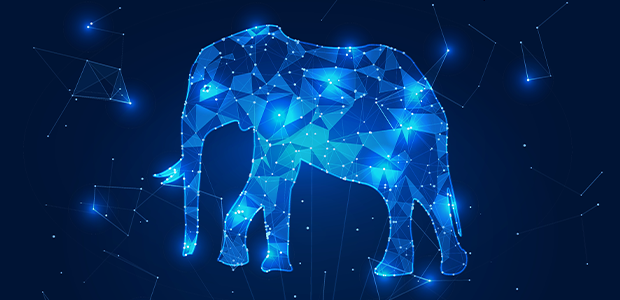
Colossal's mRNA vaccine administered to elephant at Houston Zoo
Colossal, the de-extinction startup, has announced a significant milestone: the administration of the first mRNA vaccine to an elephant in captivity, a result of its research support and funding acceleration.
Elephant endotheliotropic herpesvirus (EEHV) is the leading cause of death for Asian elephant calves in managed care across North America and Europe, and also threatens wild populations. Recent deaths of several African elephants in the US due to EEHV have heightened concerns for this species as well. This breakthrough aims to pave the way for EEHV vaccines for both Asian and African elephants.
Dr Paul Ling's pioneering work at Baylor College of Medicine, in collaboration with Houston Zoo, began in 2009. They developed advanced tools for detecting and managing EEHV. In recent years, Colossal's involvement has significantly accelerated the progress of the vaccine development.
“Colossal supported our efforts to work on an mRNA solution approach,” shared Dr Paul Ling, Professor at the Department of Microbiology and Virology at Baylor College of Medicine. “It quickly became evident that the mRNA solution was going to be feasible, so we prioritised implementation of that approach. We are much further along today than we would have been without Colossal’s scientific support, research teams and funding.”
EEHV, known for causing lethal hemorrhagic disease, often leads to high levels of the virus in multiple organs. The EEHV mRNA vaccine aims to expose elephants to key viral proteins necessary for the virus to attach and enter host cells. This exposure helps induce an immune response, blocking these processes and enabling elephants to control viral growth, preventing lethal disease. The initial vaccine targets the EEHV1A strain, responsible for most deadly infections in Asian elephants. The mRNA platform can be adapted to other EEHV strains, including those affecting African elephants.
Extensive preclinical trials showed the mRNA vaccine can induce antibodies without adverse effects. Recently, the vaccine received approval from multiple oversight entities for use in elephants. The Houston Zoo approved it for their managed community, administering it to Tess, a 40-year-old Asian elephant. Over the coming weeks, animal care experts and veterinary staff will monitor Tess to assess the vaccine’s effectiveness. If successful, the zoo plans to vaccinate more elephants in their care.
Encouraged by initial trial results, the vaccine will be offered to more facilities, especially those with vulnerable young elephants. Dr Ling hopes to see the vaccine widely applied to elephants under human care within three to five years, with future applications in wild populations. This represents a significant advancement in elephant protection and a major leap forward in veterinary science.
“I’m glad we could help accelerate and shorten this multi-decade journey with EEHV. We felt that there was not enough advanced technology or funding going into this work. And, yet the science necessary to stop animals on the brink of extinction from dying must be our priority,” said CEO and Co-Founder of Colossal, Ben Lamm. “Elephants are incredibly intelligent keystone species that are critical to their ecosystems and worth saving. What Dr Ling and our team have done in the past few years is incredible and we are thrilled that our partnership was essential to making this happen.”
Colossal’s advanced technology tools, research support, and funding help to accelerate the vaccine development and deployment, in part because of Colossal’s early role using its proprietary AI computational technologies to sequence the Asian elephant genome, which provided additional important information to evaluate responses to the vaccine.
“In my 15 years caring for elephants, I have witnessed elephants battle EEHV time and time again. I even lost a juvenile elephant under my care. It was among the most excruciating moments of my career” said Colossal’s Chief Animal Officer Matt James. To be able to get a vaccine into the world that can stop that sort of senseless loss means everything to me. This is why I joined Colossal. I know we can work faster, and smarter, to save species on the brink of extinction: this is proof.”
Colossal believes that everyone must work together, quickly and efficiently, to stop the coming extinction crisis. Conservation of the past has helped, but without the integration of advanced scientific developments and faster timelines to completion, we will fail to save important species. Today, we are one step closer with elephants; there are so many more species to go.

